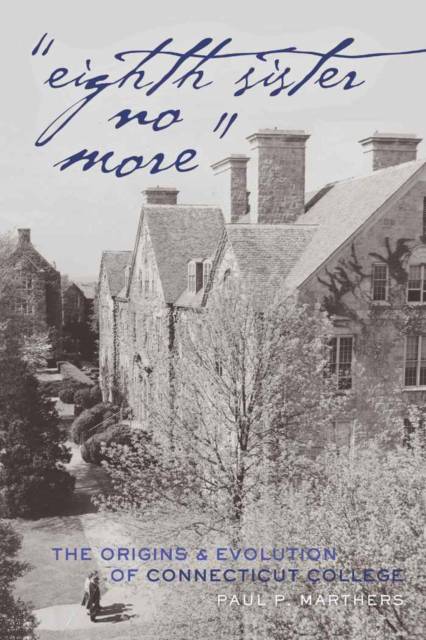
Door een staking bij bpost kan je online bestelling op dit moment iets langer onderweg zijn dan voorzien. Dringend iets nodig? Onze winkels ontvangen jou met open armen!
- Afhalen na 1 uur in een winkel met voorraad
- Gratis thuislevering in België vanaf € 30
- Ruim aanbod met 7 miljoen producten
Door een staking bij bpost kan je online bestelling op dit moment iets langer onderweg zijn dan voorzien. Dringend iets nodig? Onze winkels ontvangen jou met open armen!
- Afhalen na 1 uur in een winkel met voorraad
- Gratis thuislevering in België vanaf € 30
- Ruim aanbod met 7 miljoen producten
Zoeken
€ 85,95
+ 171 punten
Uitvoering
Omschrijving
When founded in 1911, Connecticut College for Women was a pioneering women's college that sought to prepare the progressive era's new woman to be self-sufficient. Despite a path-breaking emphasis on preparation for work in the new fields opening to women, Connecticut College and its peers have been overlooked by historians of women's higher education. This book makes the case for the significance of Connecticut College's birth and evolution, and contextualizes the college in the history of women's education. Eighth Sister No More examines Connecticut College for Women's founding mission and vision, revealing how its grassroots founding to provide educational opportunity for women was altered by coeducation; how the college has been shaped by changes in thinking about women's roles and alterations in curricular emphasis; and the role local community ties played at the college's point of origin and during the recent presidency of Claire Gaudiani, the only alumna to lead the college. Examining Connecticut College's founding in the context of its evolution illustrates how founding mission and vision inform the way colleges describe what they are and do, and whether there are essential elements of founding mission and vision that must be remembered or preserved. Drawing on archival research, oral history interviews, and seminal works on higher education history and women's history, Eighth Sister No More provides an illuminating view into the liberal arts segment of American higher education.
Specificaties
Betrokkenen
- Auteur(s):
- Uitgeverij:
Inhoud
- Aantal bladzijden:
- 270
- Taal:
- Engels
- Reeks:
- Reeksnummer:
- nr. 56
Eigenschappen
- Productcode (EAN):
- 9781433112201
- Verschijningsdatum:
- 11/11/2010
- Uitvoering:
- Paperback
- Formaat:
- Trade paperback (VS)
- Afmetingen:
- 152 mm x 229 mm
- Gewicht:
- 376 g

Alleen bij Standaard Boekhandel
+ 171 punten op je klantenkaart van Standaard Boekhandel
Beoordelingen
We publiceren alleen reviews die voldoen aan de voorwaarden voor reviews. Bekijk onze voorwaarden voor reviews.











